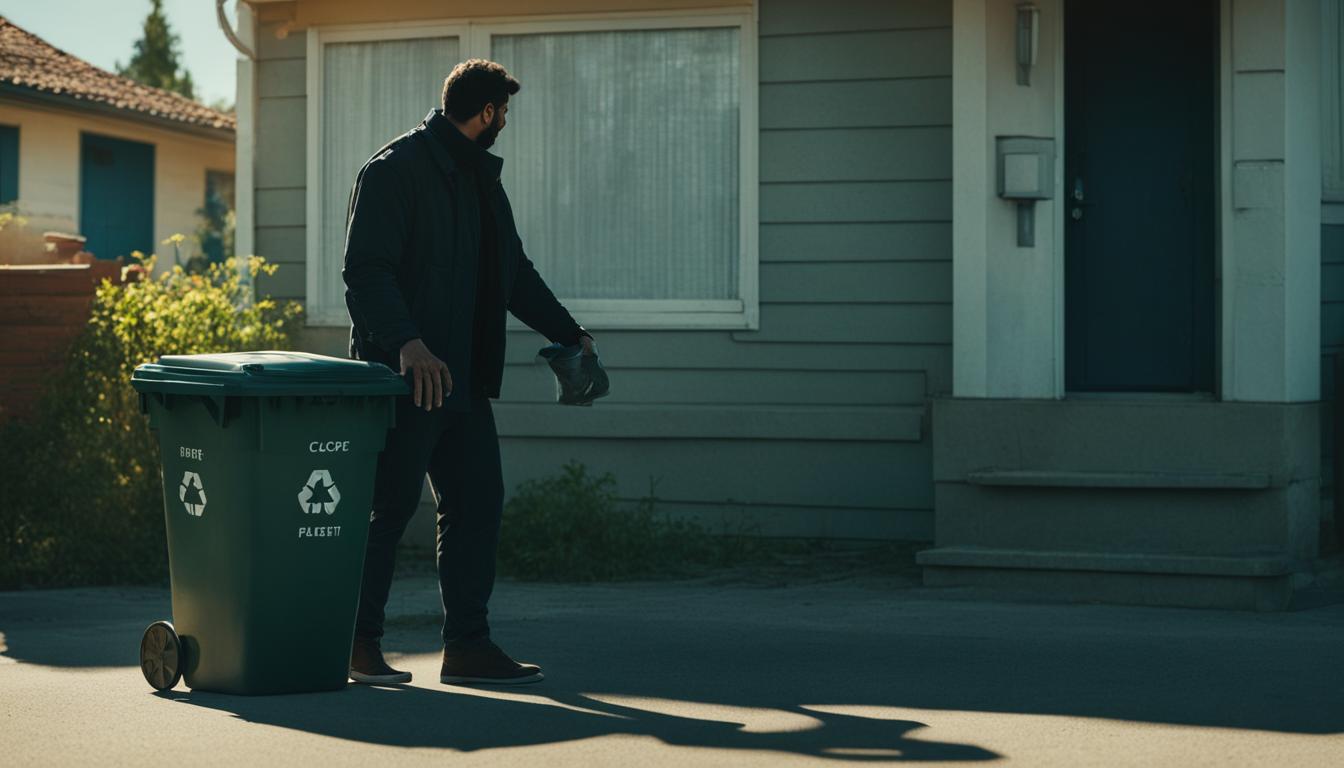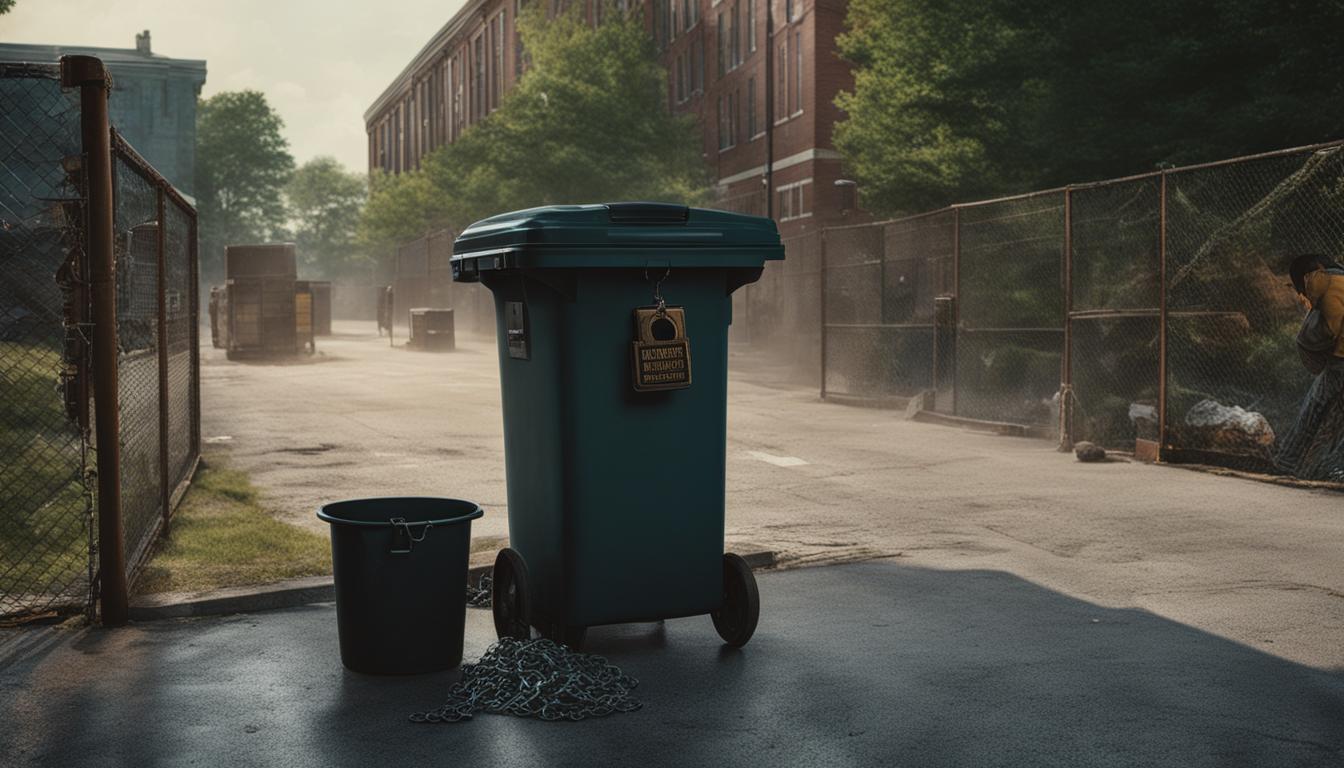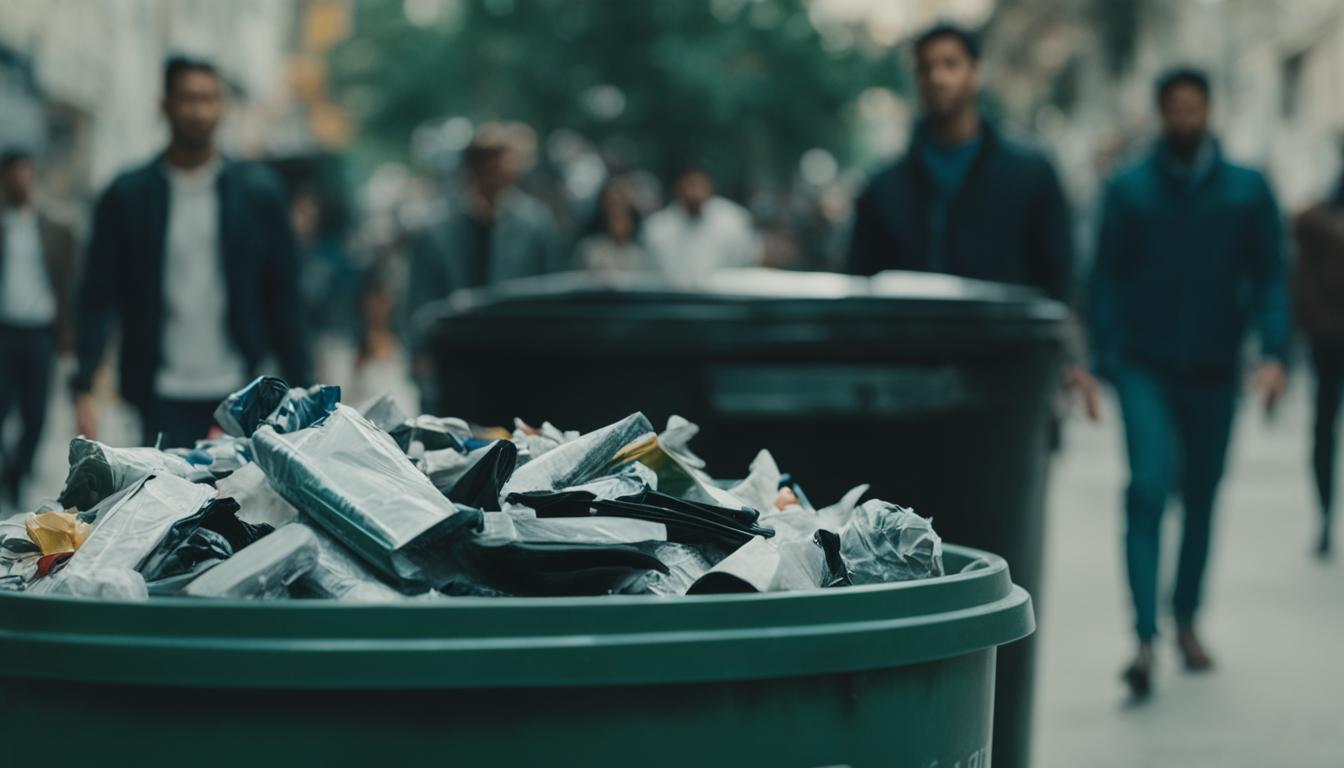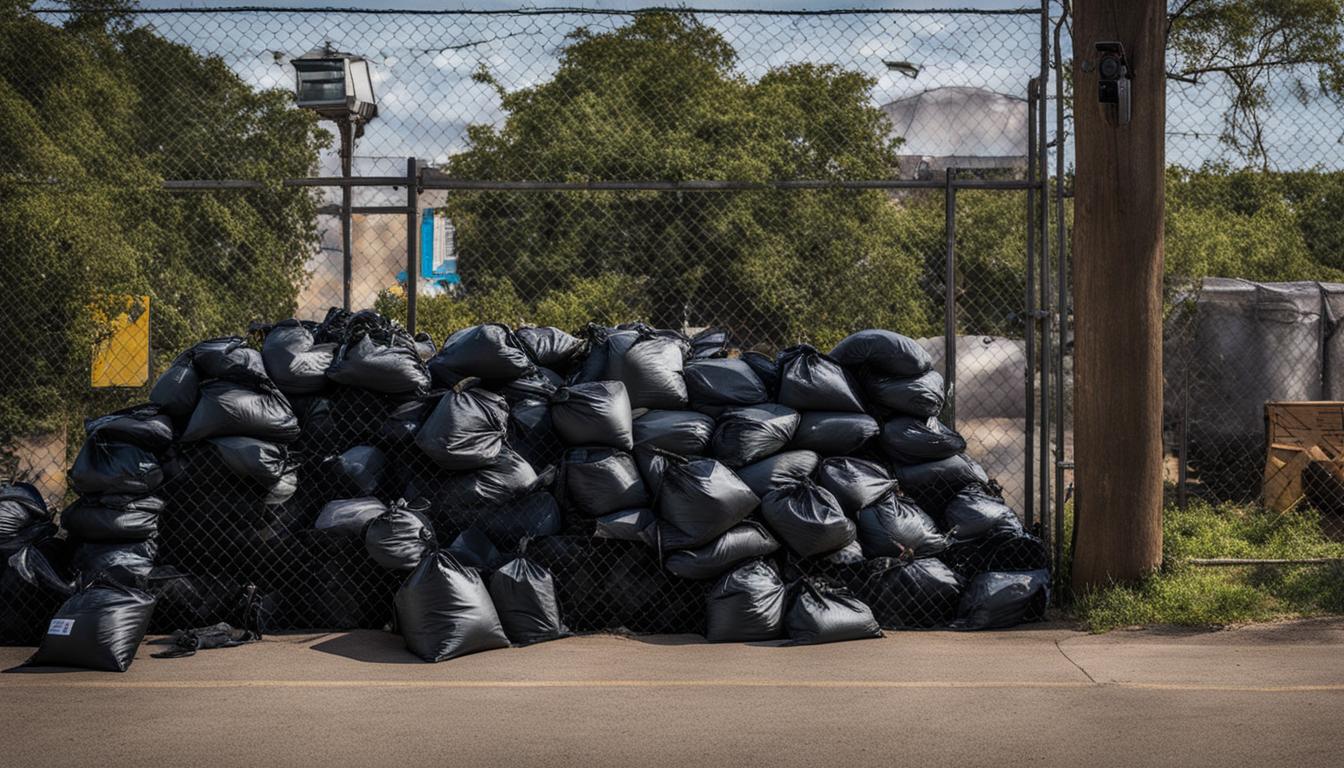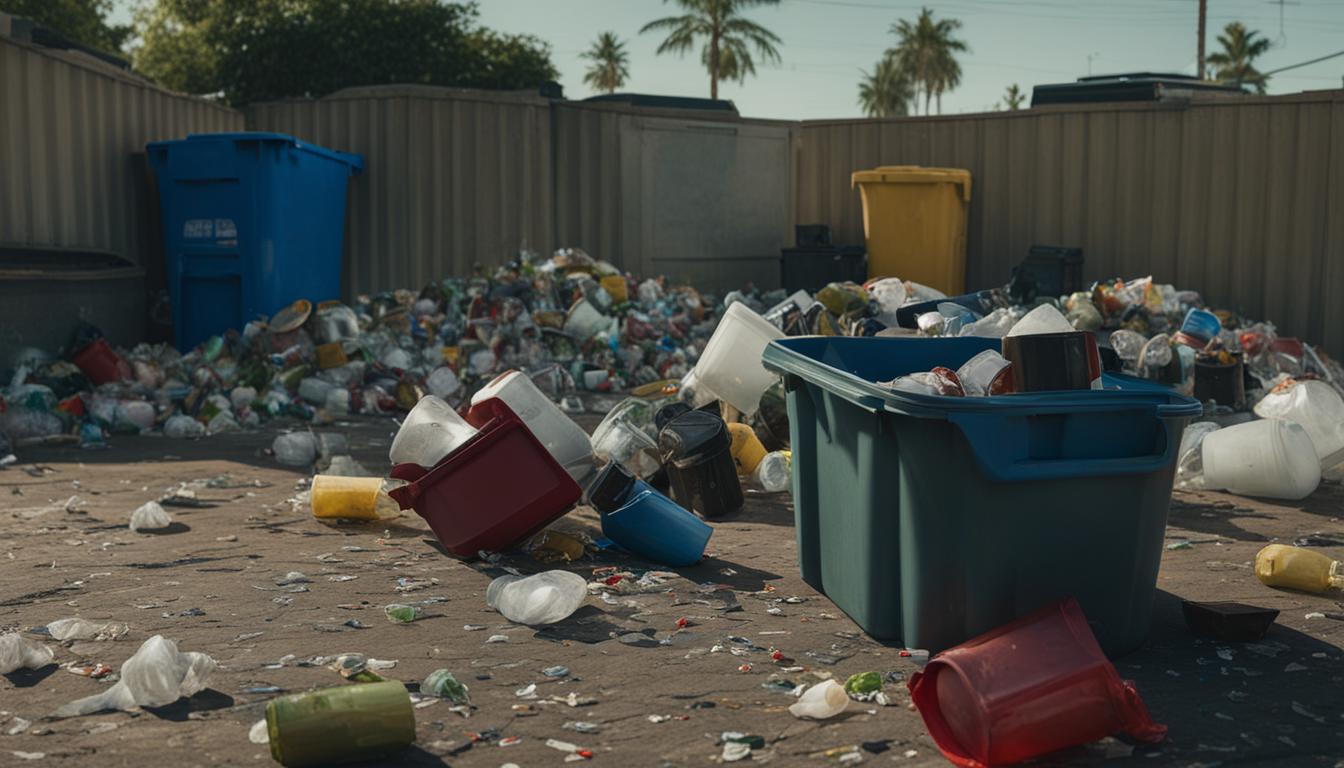Disclosure: This Post Contains Affiliate Links; We earn a commission on purchases.
In California, the legality of rummaging through someone’s trash is a topic of interest. While it is not technically illegal to go through someone’s trash in California, there are certain guidelines and considerations to keep in mind. It’s important to understand the privacy laws and regulations surrounding trash searching, as well as the potential consequences of trespassing or violating other specific laws.
Key Takeaways
- While it is not illegal to go through someone’s trash in California, it is important to understand the privacy laws and regulations surrounding trash searching.
- Specific counties or cities within California may have their own ordinances or regulations regarding trash searching, so it is important to familiarize yourself with the laws in your specific area.
- Trespassing laws still apply, so individuals can face consequences if they commit a crime while going through trash or are verbally warned not to trespass.
- Homeowners who take steps to demonstrate their expectation of privacy, such as placing garbage cans in secure areas or using locks on lids, may have certain rights regarding the privacy of their trash.
- Dumpster diving may be legal, but it’s important to respect private property and the rights of others. Always seek permission or clarify any concerns before engaging in dumpster diving.
Legalities and Regulations of Trash Rummaging in California
Dumpster diving, or going through someone’s trash, is generally considered legal in California. A 1988 Supreme Court decision, California vs Greenwood, established that once trash is placed outside for collection, it is considered public domain and there is no reasonable expectation of privacy. However, it’s important to note that specific counties or cities within California may have their own ordinances or regulations regarding trash searching. It is important to familiarize yourself with the laws in your specific area to ensure compliance and avoid potential legal issues.
California Privacy Laws and Dumpster Diving Regulations
In California, the act of going through someone’s trash is not explicitly illegal. The Supreme Court ruling in California vs Greenwood determined that individuals have no expectation of privacy in materials placed for garbage collection. This means that once trash is left outside on public property, such as the curb or in dumpsters, it can be freely accessed by others.
While California law generally allows dumpster diving, it’s crucial to be aware of any local ordinances or regulations that may exist. Different counties or cities within California can impose their own rules regarding trash searching. These local laws may place certain restrictions on the act of rummaging through trash, such as specific hours or locations where it is prohibited.
To ensure compliance with the regulations, it is advisable to research and familiarize yourself with the unique requirements in your area. This can be done by contacting the local city or county government offices, reviewing municipal codes, or consulting legal resources specific to your region.
| Legalities of Trash Rummaging in California | Regulations |
|---|---|
| Dumpster diving is generally legal in California based on the Supreme Court ruling in California vs Greenwood. | Specific counties or cities may have their own ordinances or regulations regarding trash searching. It is important to research and understand the laws in your area. |
| Once trash is placed outside for collection, it is considered public domain and there is no reasonable expectation of privacy. | Familiarize yourself with local laws to ensure compliance and avoid any potential legal issues. |
While dumpster diving is generally considered legal, it is essential to approach the activity responsibly and with respect for the privacy of others. Be mindful of private property boundaries and avoid trespassing onto someone’s land to access their trash. It’s also important to remember that other laws, such as trespassing laws, still apply, and individuals can face consequences if they commit a crime or violate specific regulations while dumpster diving.
By understanding the legalities and regulations surrounding dumpster diving in California, individuals can engage in this activity in a lawful manner while also respecting the rights of property owners.
Trespassing Laws and Privacy Considerations
While it may be legal to go through someone’s trash in California, it is important to respect the property rights and privacy of others. Trespassing laws still apply, so if someone commits a crime while going through trash or is verbally warned not to trespass, they could face consequences such as warnings, fines, or even arrest. Additionally, homeowners who take steps to demonstrate their expectation of privacy, such as placing garbage cans in secure areas or using locks on lids, may have certain rights regarding the privacy of their trash. It’s essential to be aware of these considerations to avoid legal issues.
When it comes to trash searching, individuals should exercise caution and adhere to privacy boundaries. Trespassing laws in California protect property owners and prohibit unauthorized entry onto private property. Therefore, accessing someone’s private property without permission while searching through their trash can lead to legal implications, irrespective of the act’s legality. It is crucial to always respect the property rights of others and seek consent when necessary.
Furthermore, homeowners who take proactive measures to safeguard their privacy have certain expectations regarding the disposal of their trash. Placing bins in secure areas or using locks on lids indicates an intent for privacy and may afford individuals certain rights. While dumpster diving may be legal in the broader sense, it is vital to consider the unique circumstances and potential implications of trespassing or violating someone’s privacy. Respecting these boundaries helps maintain harmony within communities and avoids potential conflicts.
Respecting the privacy rights of others is not only a legal obligation but also a moral responsibility. Remember, even if certain actions may be technically legal, it is crucial to consider the impact they have on others and the broader community. Always exercise caution and ensure that your actions align with the principles of respect, privacy, and responsibility.
By understanding the trespassing laws in California and considering privacy considerations, individuals can navigate trash searching activities in a lawful and considerate manner. Being mindful of privacy expectations, seeking permission when necessary, and respecting the property rights of others are all crucial aspects of engaging in trash searching responsibly.
Summary of Trespassing Laws and Privacy Considerations:
- While going through someone’s trash may be legal in California, trespassing laws still apply.
- Committing a crime during trash searching or being verbally warned not to trespass can result in consequences such as warnings, fines, or arrest.
- Homeowners who take steps to demonstrate their expectation of privacy may have certain rights regarding the privacy of their trash.
- Respecting property rights and obtaining consent when necessary is essential to avoid legal issues.
- Exercising caution, adhering to privacy boundaries, and considering the overall impact on others are crucial components of responsible trash searching.
Consequences and Guidelines for Trash Rummaging in California
While dumpster diving may be legal in California, it is important to be aware of the potential risks and consequences associated with this activity. Violating certain guidelines and regulations can lead to complaints, fines, or other legal issues. Additionally, it is crucial to prioritize safety and respect for private property when engaging in trash picking. Here are some key guidelines and safety tips to consider:
1. Obtain Permission or Clarify Concerns
Before diving into dumpsters, it is recommended to seek permission from the relevant authorities or property owners. This step helps avoid potential complaints and legal repercussions. Contact local government, police departments, or businesses to clarify any concerns or obtain necessary permissions.
2. Respect Private Property and Rights of Others
Respecting private property is a fundamental aspect of dumpster diving. Be mindful of not trespassing on private property or violating any specific regulations. It’s important to remember that dumpster diving does not grant permission to enter restricted areas or interfere with the property rights of others.
3. Prioritize Safety
Ensuring personal safety should be a top priority when engaging in dumpster diving. Consider the following safety tips:
- Wear protective gloves and clothing to safeguard against potential hazards or sharp objects.
- Use a flashlight or headlamp to enhance visibility, especially in dimly lit areas.
- Avoid diving alone. Having a partner can help ensure personal safety and provide assistance if needed.
- Be cautious of the environment and potential dangers, such as unstable or stacked items.
4. Maintain Hygiene and Cleanliness
When rummaging through trash, it is crucial to maintain proper hygiene and cleanliness to minimize health risks. Follow these guidelines:
- Wash hands thoroughly with soap and water after handling trash or touching any potentially contaminated objects.
- Consider carrying hand sanitizer or wet wipes for situations where water is not readily available.
- Ensure that any food or consumables found are safe for consumption before consuming them.
By adhering to these guidelines and taking necessary precautions, individuals can navigate dumpster diving safely and responsibly, minimizing any potential legal or health risks.
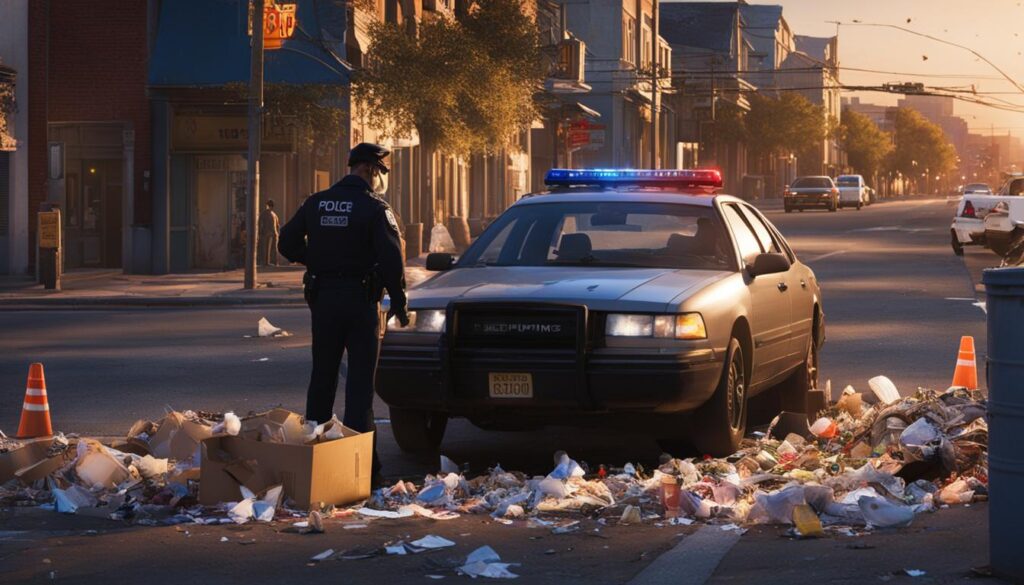
Conclusion
In summary, dumpster diving is generally considered legal in California, as established by the 1988 Supreme Court decision in California vs Greenwood. Once trash is placed outside for collection, it is no longer protected by privacy laws, and there is no reasonable expectation of privacy. However, it is important to note that certain counties or cities may have their own regulations or ordinances regarding trash searching.
While it may be legal to go through someone’s trash, it is crucial to respect the property rights and privacy of others. Trespassing laws still apply, and individuals can face consequences if they commit crimes while rummaging through trash or if they are verbally warned not to trespass. Homeowners who take measures to demonstrate their expectation of privacy, such as securing garbage cans or using locks on lids, may have additional rights regarding the privacy of their trash.
To engage in dumpster diving responsibly and lawfully, it is essential to understand the specific regulations and privacy laws in your area. If unsure, reaching out to local authorities, businesses, or property owners for permission or clarification can help avoid any legal issues. Additionally, respecting private property and practicing proper hygiene and safety precautions are important considerations when participating in dumpster diving activities. By being mindful of these guidelines, individuals can navigate the legality of dumpster diving in California in a responsible manner.
Source Links
- https://residentnews.net/2020/04/02/is-it-legal-for-someone-to-go-through-your-trash/
- https://pw.lacounty.gov/general/faq/index.cfm?203=203&Action=getAnswers&FaqID=IyM9PzcK&Keywords=1
- https://www.isquareit.edu.in/is-dumpster-diving-legal-in-california/

Subscribe to Our Newsletter

